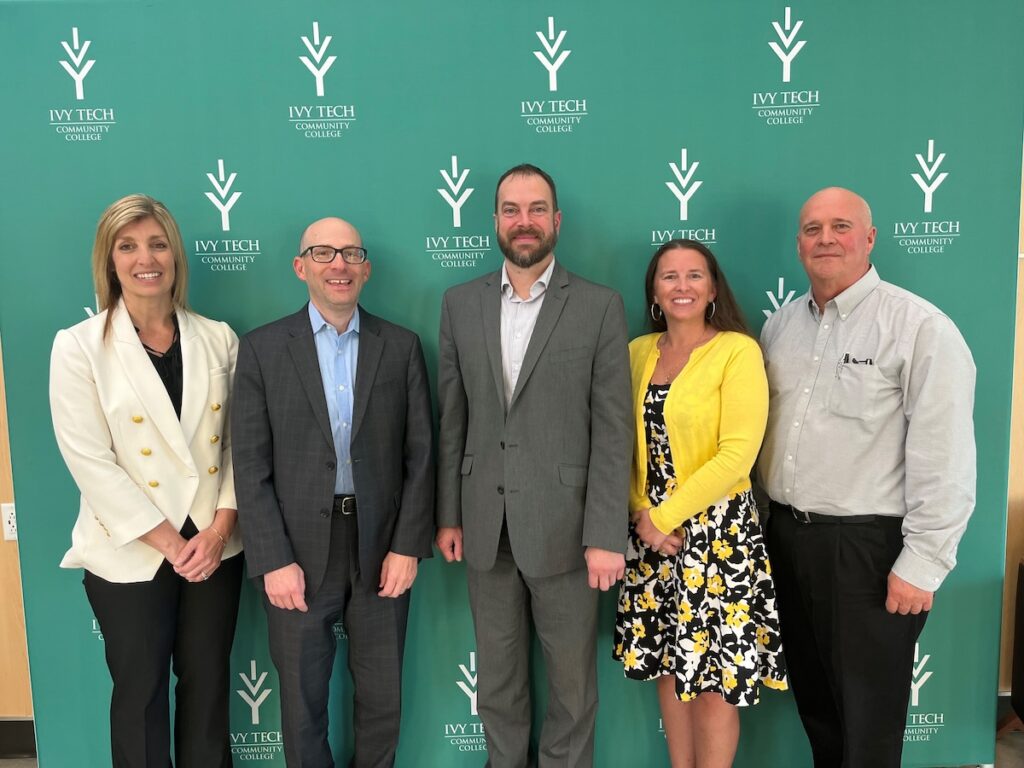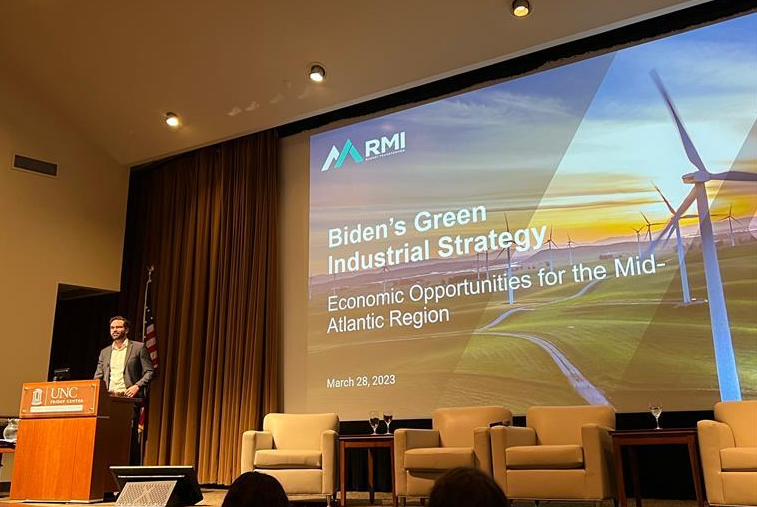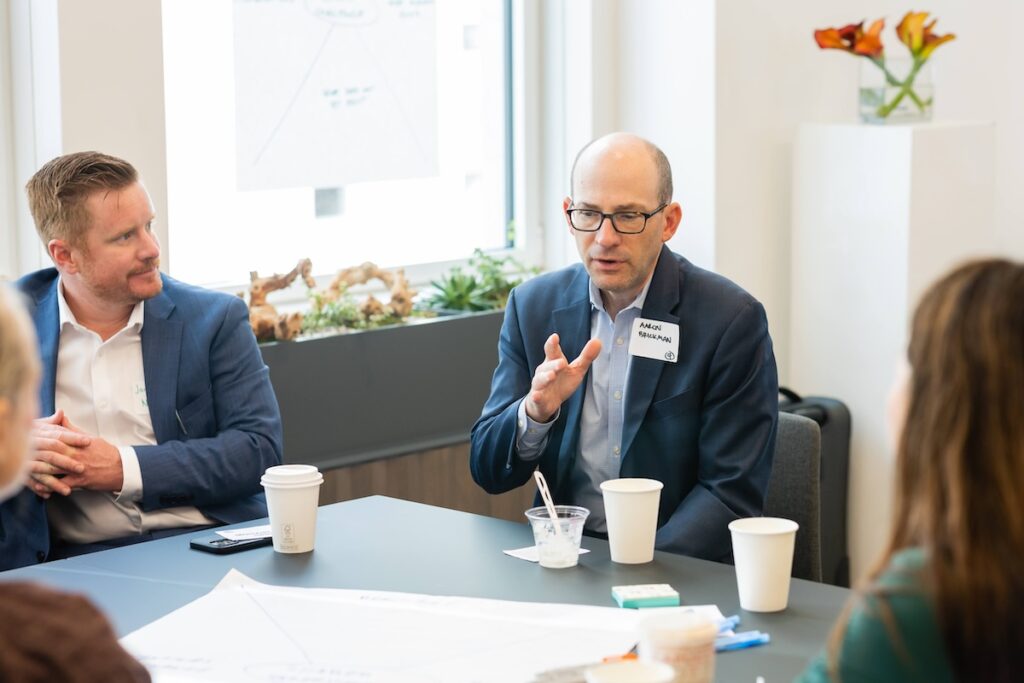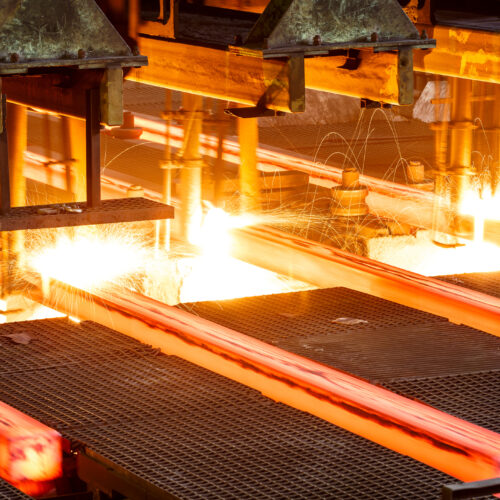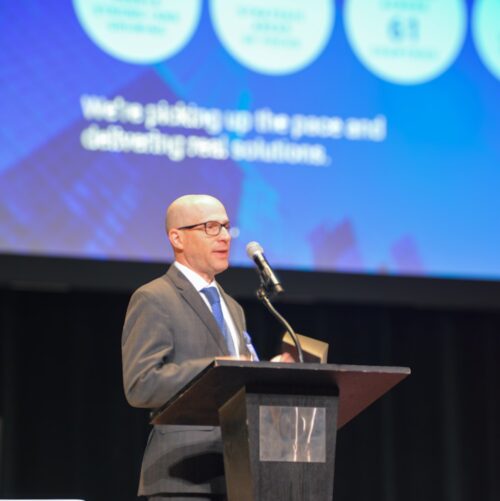
Aaron Brickman: Bringing Clean Technology Investment to Regions across the United States
This RMI investment expert travels the country with his passion for clean energy and economic development.
When Aaron Brickman saw the two behemoth EV battery manufacturing facilities rising from the ground — each 58 football fields in size — in the small town of Kokomo, Indiana, he knew big change was coming to North-Central Indiana. “It’s big. It’s impactful. It’s like a cannonball in the deep end of the pool in terms of what good comes with this,” Brickman says. He was visiting Kokomo to learn about the multibillion-dollar plants that Stellantis and Samsung are building in this town of 60,000, which are expected to create 2,800 jobs.
“Reading about something is fine,” explains Brickman. “But seeing it and learning from the people who are directly involved, who made it happen, and who will be on point for building upon that success, there is no substitute for that, and that’s what I want to do, and where I think we need to be.”
Aaron Brickman, second from left, meeting with economic development and higher education workforce leaders in Kokomo, Indiana.
Brickman is passionate about helping states, cities, and counties across the country attract new investment, be more competitive, and create jobs. In fact, he created and led the first US national investment promotion program — SelectUSA — when he worked at the US Department of Commerce. SelectUSA is responsible for $200 billion in investment in the United States and hundreds of thousands of US jobs.
He now leads RMI’s economic development initiatives to accelerate clean energy deployment and investment in the cleantech manufacturing supply chain. And the United States is at an auspicious moment for that, following the passage of the Inflation Reduction Act (IRA). “We’re in this time where national economic competitiveness has a renewed importance and the IRA is an unprecedented economic development tool that is providing a phenomenal shot in the arm to US industry,” Brickman says.
In the two-plus years he has been at RMI, Brickman and his team have worked with economic development organizations, community-based organizations, and corporations in more than 30 cities and towns across the United States. These include large metropolitan areas such as New York City and Chicago, as well as small rural towns, such as Shawnee, Oklahoma, and Wabash, Indiana. Many of his visits have been to the Great Lakes region, where he sees many economic opportunities, such as green steel in Minnesota’s iron range; sustainable aviation fuel in Illinois; and expanded EV manufacturing supply chain investments across the region. Farther afield, opportunities include clean agtech and wind power innovation in the corridor between Grand Forks and Fargo, North Dakota; and clean hydrogen in the Red River Valley (northwestern Minnesota and eastern North Dakota).
RMI Manager Lachlan Carey, who works with Brickman on US regional economic development through clean energy investment, speaking at the University of North Carolina’s Cleantech Summit.
And it’s in these smaller towns where Brickman gets passionate about bringing in these economic development opportunities. “If you think about these big EV battery or solar panel manufacturing announcements, they are a big deal,” he explains. “But it’s an even bigger deal when you’re not in a major metropolitan area. Then it’s not just one story among many, it’s the entire story. When you’re in a small town and a new plant has been announced, you know that the economy is going to improve, and it’s going to improve dramatically.”
When you’re in a small town and a new plant has been announced, you know that the economy is going to improve, and it’s going to improve dramatically.
Aligning policy with economic development strategy
Brickman and his team share RMI’s technical and economic analysis around these cleantech opportunities, including which sectors in which places make the most sense for regional competitiveness, with cities and states across the country. “RMI is such an incredible organization of experts, and we have a long track record of experience working all over the US, and we’re very pragmatic and straight shooting about the opportunities and about what can work where. It’s the perfect combination,” Brickman explains.
Aaron Brickman at a workforce event hosted by Work on Climate at New York Climate Week 2023.
Brickman has worked with thousands of economic development professionals across all 50 states, Washington, D.C., and five US territories. As a result, he’s gained an incredible understanding of the tough choices that economic development organizations have to make about how to prioritize which sectors to position themselves for, and for which reasons. “It’s not just a checkbox exercise,” he says. “It’s not even just a planning exercise. It’s an exercise that determines the future of that place and the livelihood of the people and the workers.”
But to Brickman, it’s more than just finding the right technology for the area. It’s also critical to align policy with economic development strategies and vice versa. “If you take a state or a place that has passed significant emissions reductions or clean energy mandates or climate policy, you can analyze pretty easily if they’re benefiting economically from those policies. And often the answer is no,” he says. “There’s not an economic development dividend that automatically gets paid out from passing these important pieces of policy or legislation.” But Brickman explains that there are ways to align a communities’ economic development strategy to its policy actions so that they do economically benefit.
And on the flip side, in places that are really good at economic development, and have implemented a lot of IRA-related projects, he asks, “What if you were taking a more proactive stance on policy or legislation to further incentivize companies to locate in your footprint? You could be even more successful.”
A passion for job creation
This is also true for workforce development strategy. “Places need to be thinking proactively, not reactively.” In other words, a town shouldn’t wait to win a project in order to figure out how to train all the workers it will need. This is a big area that Brickman and RMI help cities, regions, and states reckon with: looking into the future to predict which clean energy technologies are most likely to come to their area. “That will help them align their workforce development strategy to those future needs and make them more competitive and attractive to potential investors,” Brickman explains.
Creating jobs is also high on Brickman’s list of why he does what he does. “It’s not just numbers and words on a page,” he says. “These are real jobs in real places, and people and their families will benefit. There’s nothing more tangible than somebody going to work at a company where the company didn’t exist before.”
It’s not just numbers and words on a page. These are real jobs in real places, and people and their families will benefit.
Getting It Right
However, Brickman warns that there’s no guarantee that as a country we get it right. We can also get it wrong. “We have an unprecedented opportunity to avoid mistakes we’ve made as a country every time any other new industrial sector has come about.” For Brickman, that means ensuring that underserved and disadvantaged communities are benefiting as part of the energy transition and that we build out these sectors in an equitable and just manner.
“It’s not good enough that we have the cleantech opportunity. What’s really important is how it’s rolled out, how it’s enacted, who’s involved, how it’s shaped, and how it’s executed,” Brickman points out. “Impact and benefit is the name of the game, and we’ll either see it or we won’t.”
Kokomo isn’t the only town benefitting from cleantech investment in Indiana, and projects can start big or small. “There is an interesting innovation taking place as far south as you can go in Indiana, in Evansville,” explains Brickman. The Evansville Energy Nucleus project received a $50,000 award from the Department of Energy to activate initiatives in clean energy manufacturing in the region. They are particularly focusing on how new cleantech manufacturing can be beneficial to residents in underserved communities in Evansville.
The IRA is creating a once-in-a-generation opportunity to bring clean energy manufacturing and jobs to communities across the United States. And as Brickman says, it’s already happening. But he adds, “There is much more potential and opportunity, year on year. So let’s get it right.”
